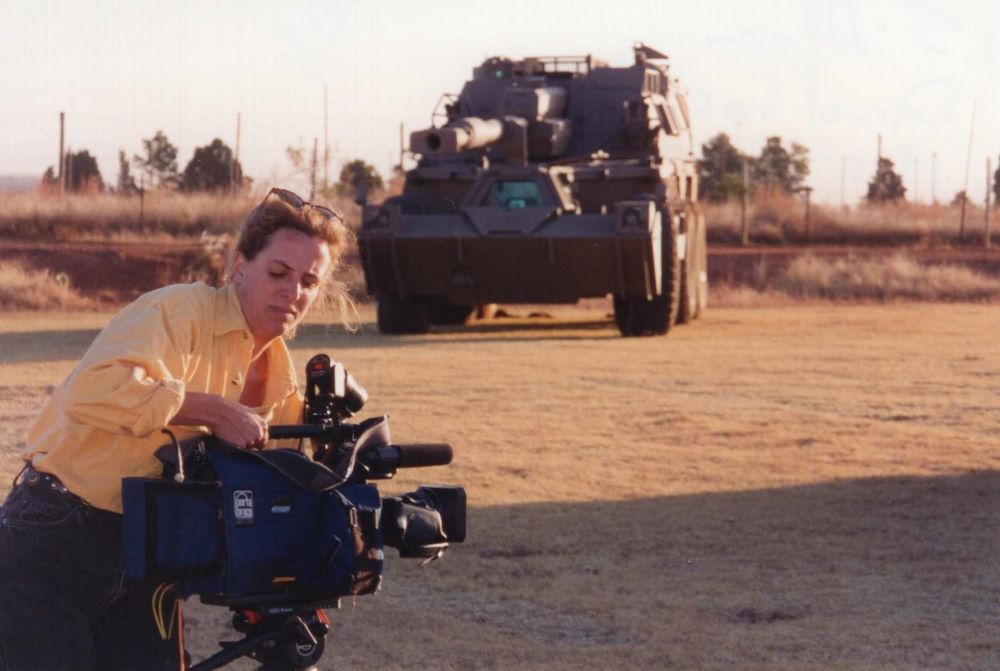Documenting History
Uncovering the truth in war
By Elizabeth Bailey
The Norfolk Library is screening two documentary films featuring the work of journalists committed to bringing the truth to the American people in commemoration of Veterans Day. “Dateline Saigon” features the investigations of Pulitzer Prize-winning journalists David Halberstam, Neil Sheehan, Malcolm Browne, Peter Arnett and the photojournalist Horst Faas into the reality behind the rosy pictures of the course of the war in Vietnam painted by the Kennedy Administration.
Bestor Cram, co-producer of “Dateline Saigon,” explains: “The documentary is a reminder of the critical role the journalist plays in not just writing the first page of history but in the search for truth, uncovering what really is happening and holding the government and officials accountable.” He notes further that “The film is essential today because we know that journalism is filled with chaos and is now a participant in covering up the truth.”
Two local journalists who began their careers covering Vietnam, James Sterba and Frances Fitzgerald, will answer questions following the screening. Many readers will remember Sterba’s four decades of reporting for the New York Times and the Wall Street Journal. Fitzgerald’s “Fire in the Lake: the Vietnamese and the Americans in Vietnam” (1972), received the Pulitzer Prize, the National Book Award, and the Bancroft Prize for history.
The second film, “No Ordinary Life: The Camerawomen Who Brought the Frontlines to the Headlines,” directed by Heather O’Neill, will be introduced by Cynde Strand, one of the film’s pioneering subjects.
After training as a video journalist with CNN in Atlanta, Strand moved first to Beirut and then to China in 1987. In her early twenties, she was consumed with one ambition: “I had a burning, burning, burning desire to be part of history and a sense of responsibility to tell the stories of the people in my viewfinder.” When students massed in Beijing’s Tiananmen Square calling for democratic reform, hundreds of students—some maintain thousands—were shot or mowed down by tanks. Strand filmed the bodies and earned her first role in the history of the 20th century.
Strand went on to cover the first Gulf War from Baghdad, the first free and democratic election in South Africa, the siege of Sarajevo, the aftermath of the genocide in Rwanda and famine in Somalia. As one of the first camerawomen on the battlefield, she formed a sisterhood with four other CNN “shooters”: Maria Fleet, Jane Evans, Mary Rodgers and Margaret Moth.
Strand said that during the early “renegade” days of CNN, the five women sought out international camera jobs. They filmed the male journalists in khaki bush jackets shouting into microphones as the bombs dropped, but they also turned their cameras on the families and individuals affected by war and disasters. Their fresh eyes behind the viewfinders focused on human stories. Christiane Amanpour, who also began her career with CNN, became a new voice reporting those stories.
“We never lost our empathy,” explains Strand, “but as a cameraperson we were separated from what was before us by a lens.” One of her most haunting memories is of filming a woman dying of starvation in Somalia. “Our job was to bear witness. Our responsibility was to do good journalism and to show the truth of what was happening in other parts of the world,” she says. After a pause Strand adds, “One of the great regrets of my life is that I don’t know the woman’s name.”
Not much was known about PTSD at the time. “We didn’t realize we were experiencing trauma. We had each other, we had the bar, and our colleagues were our family,” Strand explains. The camerawomen were tasked with showing the worst that man could do to man, but they also told the stories of human kindness, filming the teenager carrying his grandmother to get water from aid workers and the medics attending the hopelessly wounded.
In 2004 Strand returned to CNN in Atlanta, eventually becoming executive director of coverage for international news. One member of the sisterhood, Margaret Moth, suffered a shattered jaw after being shot by a sniper in Sarajevo. She survived but later died of cancer. The other members remain connected. “The last time we got together, I realized that people looking at us might think we were aging members of a book club. Little would they know.”
“Dateline Saigon” will be shown on Friday, Nov. 8, from 7 to 9 p.m. “No Ordinary Life” will be screened on Saturday, Nov. 16, from 4:30 to 6 p.m.

Pioneering camerawoman Cynde Strand will be at the Norfolk Library on Nov. 16.
